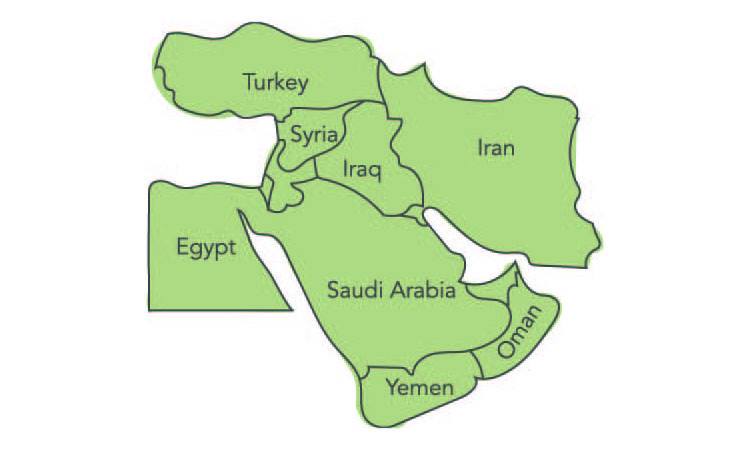OPINION: Seriously, the Middle East isn’t a country
Photo credit/ Elizabeth Carlson
December 5, 2016
It might not seem like an important point. It might seem obvious. But it might be surprising how often “Middle East” is thrown around as though it were a single, large country.
My political writing class was discussing Islamophobia in a class discussion. I suggested that it was due, in part, however irrationally, to the state of human rights in the Middle East.
This made sense to me. That’s where all of the honor killings and beheadings reported in the news seem to be coming from. I felt like I’d presented an intelligent and socially-conscious argument, and concluded it rather satisfied with myself.
But then, a classmate pointed out something important: it’s not all like that. This lead to a second, more fundamental realization: there are more countries in the Middle East than I could name, and I hadn’t read the legal code of a single one of them. But that hadn’t stopped me from speaking confidently about the entire region.
The problem is that the Middle East is a huge area consisting of 17.
sovereign nations speaking about sixty languages. That’s 17 legal codes in 17 different sociopolitical climates.
Yet it’s all too easy to write them off as a single, oppressive culture since it’s one that’s isolated and almost invisible to us. Moreover, the region is characterized by a broad adherence to Islam, a religion poorly understood and widely stereotyped by the west.
As a person who cringes when Africa is identified as one country, this bothered me. The distinction isn’t merely a matter of geographic ignorance—even well-informed individuals throw around the term “Africa” in situations where more specificity would be appropriate. Much is made of this problem, particularly as it relates to journalism.
By virtue of having had little international agency for centuries, Africa has become a collective wilderness rather than a collection of independent nations in the unspoken reckoning of western society. Hence, “Africa” can refer to any of 56 nations—an absurdly imprecise generalization.
But that problem has been identified. “Middle East,” however, continues to refer to every country from Turkey, which hopes to join the European Union, to Saudi Arabia, where homosexuality is punishable by death.
Geographic regions, like any division, are useful in that the ability to sort and categorize information is vital to critical thinking. In this particular example, however, a more detailed division of the subject matter would have been helpful.
At any rate, I’ve made a point of learning the names of all 17 countries and familiarizing myself with the freedoms their citizens have.
It’s harder to stereotype something you’re knowledgeable about.
Contact the writer: [email protected]





